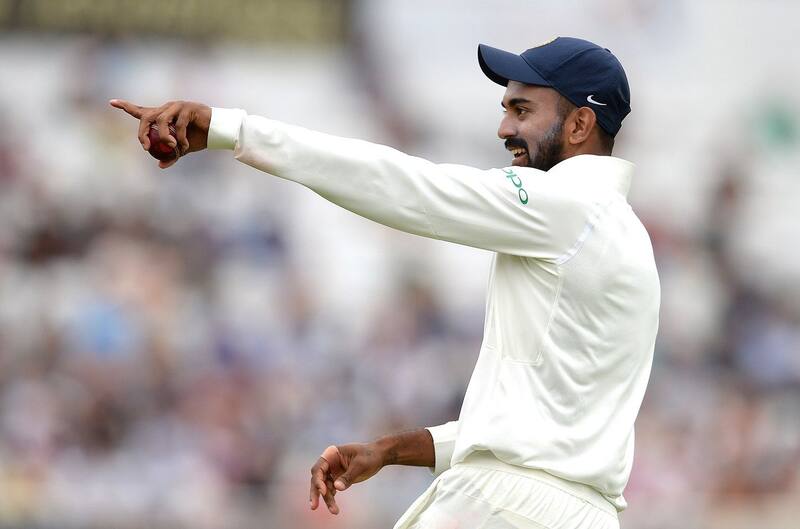
Cricket Country Staff
Editorial team of CricketCountry.
Written by Cricket Country Staff
Published: Sep 10, 2018, 09:03 PM (IST)
Edited: Sep 10, 2018, 09:03 PM (IST)

KL Rahul has become the holder of the most catches by an Indian fielder (non wicketkeeper) in a Test series, taking his 14th catch of the ongoing series to surpass Rahul Dravid’s previous record of 13.
Rahul held on to a simple catch at deep midwicket when Ben Stokes tried to heave one off Ravindra Jadeja in a bid to up the ante in the final session of day four of the fifth Test. With the lead well over 400, England were looking for some quick runs, which Stokes provided, but was caught for 37.
This has also drawn him level with Greg Chappell’s 14 catches, taken in six Tests during the 1974-75 Ashes. Overall, the record for most catches in a Test series belongs to Australia’s Jack Gregory, who held 15 in a 5-0 drubbing of England in the 1920-21 Ashes.
During the 2004-05 Border Gavaskar Trophy between India and Australia, Dravid had taken 13 catches to make the record his own, surpassing Eknath Solkar’s mark of 12.
Rahul’s 12th catch of the series came on the opening morning of the fifth Test when he held England opener Keaton Jennings at leg slip. With this, he drew level with Solkar’s 12 catches taken during the 1972/73 home series against England. His 13th, to draw level with Dravid, came early into the second session on day two when he held a spectacular running catch at mid-on, sprinting back and then diving to hold onto a miscued drive.

This athletic catch made Rahul the first fielder to hold 13 in a Test series in England.
Seven of his 14 catches so far this series came in India’s only win, at Trent Bridge – all at his customary position of second slip. That put him one short of the overcall record, for any team, for most catches in a Test match, which is owned by team-mate Ajinkya Rahane.
Rahul’s alert catching has come as a personal high amid a series in which he has failed in his primary role, that of a batsman. His scores across four Tests in England have been 4, 13, 8, 10, 23, 26, 19, 0 and 37 so far.
This website uses cookies so that we can provide you with the best user experience possible. Cookie information is stored in your browser and performs functions such as recognising you when you return to our website and helping our team to understand which sections of the website you find most interesting and useful.
Strictly Necessary Cookie should be enabled at all times so that we can save your preferences for cookie settings.
If you disable this cookie, we will not be able to save your preferences. This means that every time you visit this website you will need to enable or disable cookies again.
